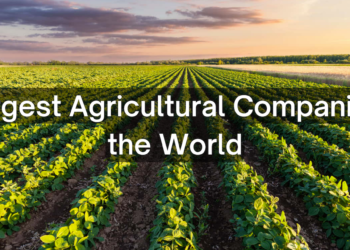Smallholder farmers play a crucial role in feeding the world and driving economic growth, particularly in developing countries. However, they often face challenges in accessing the resources and technology needed to increase productivity and profitability. This is where Agtech comes into play, offering innovative solutions to these challenges and improving the livelihoods of smallholder farmers.
The Challenges Facing Smallholder Farmers

Smallholder farmers face a range of challenges that limit their ability to increase productivity, profitability, and food security. Some of the most significant challenges include:
- Limited access to markets: Smallholder farmers often have limited access to markets, which limits their ability to sell their products and earn a livelihood. This can result in lower prices for their products and reduced income.
- Limited access to inputs: Smallholder farmers also face challenges in accessing inputs such as seeds, fertilizers, and other supplies, which can limit their ability to increase productivity and profitability.
- Limited access to financing: Smallholder farmers often lack access to financing, which limits their ability to invest in their farms and adopt new technologies.
- Limited knowledge of best practices and technology: Many smallholder farmers lack knowledge of best practices and technologies, which can limit their ability to increase productivity and profitability.
- Climate change and natural disasters: Climate change and natural disasters such as droughts, floods, and pests can have a significant impact on smallholder farmers and their crops, leading to reduced productivity and increased risk of food insecurity.
These challenges have a significant impact on the livelihoods of smallholder farmers and limit their ability to contribute to the overall development of the agriculture sector. Addressing these challenges is crucial for improving the lives of smallholder farmers and creating a more sustainable and productive agriculture sector.
The Benefits of Agtech for Smallholder Farmers
Agtech, or agricultural technology, has the potential to revolutionize the way smallholder farmers do business. By leveraging digital tools and innovative solutions, ag-tech can help smallholder farmers overcome the challenges they face and reap numerous benefits. Some of the key benefits of ag-tech for smallholder farmers include:
- Increased productivity: Agtech solutions such as precision agriculture and smart irrigation systems can help smallholder farmers increase their productivity and efficiency, leading to higher yields and reduced waste.
- Improved access to markets: Digital solutions such as e-commerce platforms and mobile apps can help smallholder farmers connect with buyers, increase their visibility, and access new markets, resulting in higher prices and increased income.
- Increased access to finance: Agtech solutions such as digital financial services and blockchain can help smallholder farmers access financing and investment, enabling them to grow their businesses and adopt new technologies.
- Improved food safety and traceability: Agtech solutions such as blockchain and digital traceability systems can help smallholder farmers demonstrate the quality and safety of their products, increasing their competitiveness in the global marketplace.
- Better information and knowledge sharing: Agtech solutions such as online training and knowledge-sharing platforms can help smallholder farmers access the information and knowledge they need to improve their farming practices and increase their productivity.
By adopting ag-tech solutions, smallholder farmers can overcome the challenges they face and reap numerous benefits. As a result, they can contribute to the overall development of the agriculture sector and improve their livelihoods and communities.
The Importance of Access to Technology for Smallholder Farmers
Access to technology is essential for smallholder farmers to take advantage of the benefits of ag-tech. However, many smallholder farmers lack access to the resources and infrastructure needed to adopt technology, such as high-speed internet, training and support, and investment in rural areas.
The Role of Government and Private Sector in Supporting Agtech for Smallholder Farmers
Both governments and private sector organizations have an important role in supporting ag-tech for smallholder farmers. Governments can provide funding and support for infrastructure development, and create policies that support the adoption of technology in agriculture.
Private sector organizations can provide funding and support for research and development, as well as training and support to help smallholder farmers take advantage of new technologies.
Successful Implementation of Agtech for Smallholder Farmers

There are many successful examples of ag-tech for smallholder farmers, such as digital platforms for market access, precision agriculture solutions, and innovative financing models. These case studies demonstrate the potential of ag-tech to improve the livelihoods and economic opportunities of smallholder farmers.
Conclusion:
Agtech has the potential to revolutionize the agriculture sector and improve the livelihoods of smallholder farmers. By addressing the challenges faced by smallholder farmers and increasing their access to markets, inputs, financing, and knowledge, ag-tech can help create a more sustainable, productive, and profitable agriculture sector. Government and private sector organizations must work together to support the adoption and implementation of ag-tech for smallholder farmers.
In conclusion, ag-tech offers a range of innovative solutions to the challenges faced by smallholder farmers and has the potential to revolutionize the agriculture sector. With the support of government and private sector organizations, smallholder farmers can take advantage of these technologies and improve their livelihoods, creating a more sustainable and profitable agriculture sector.










